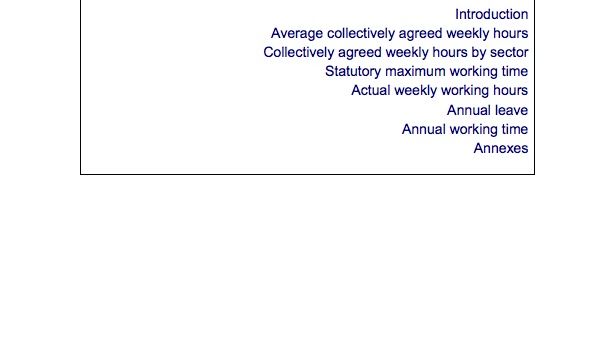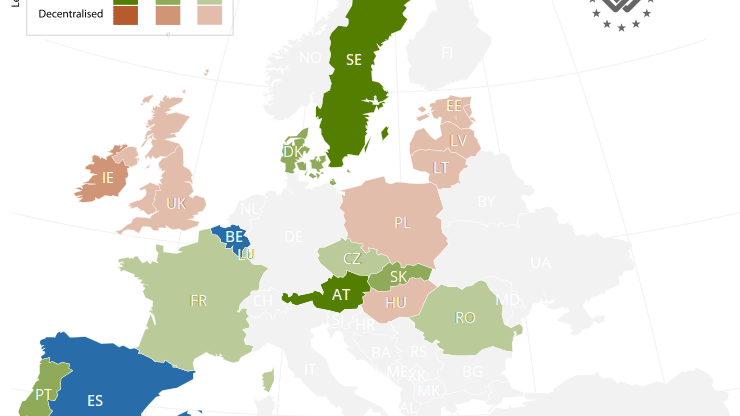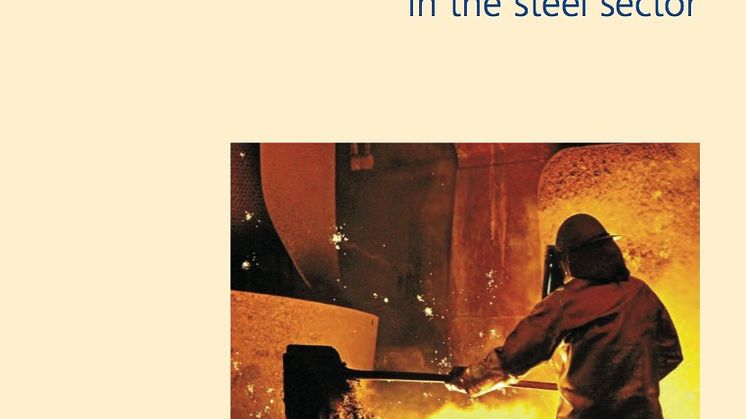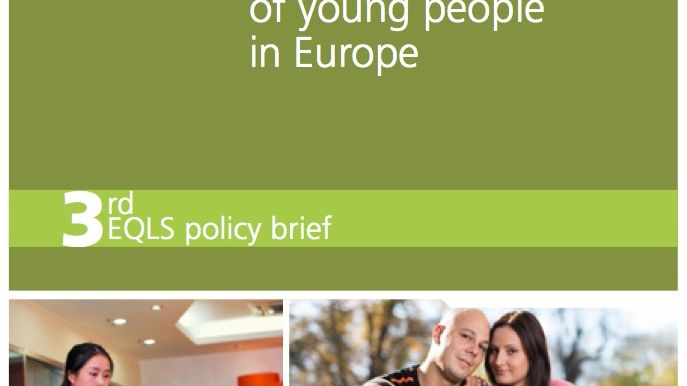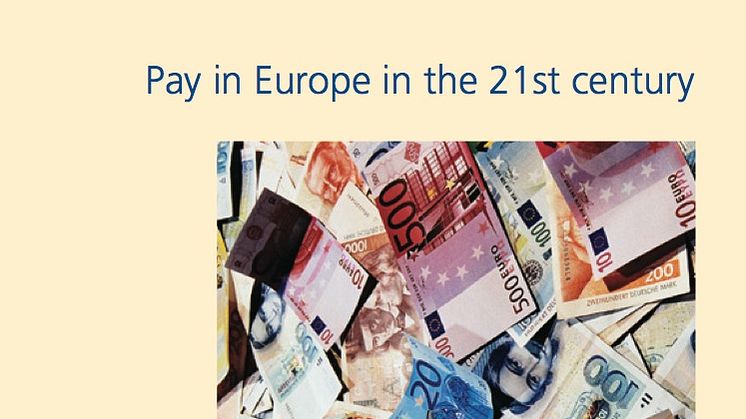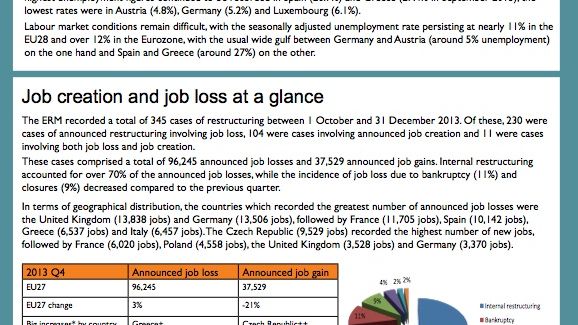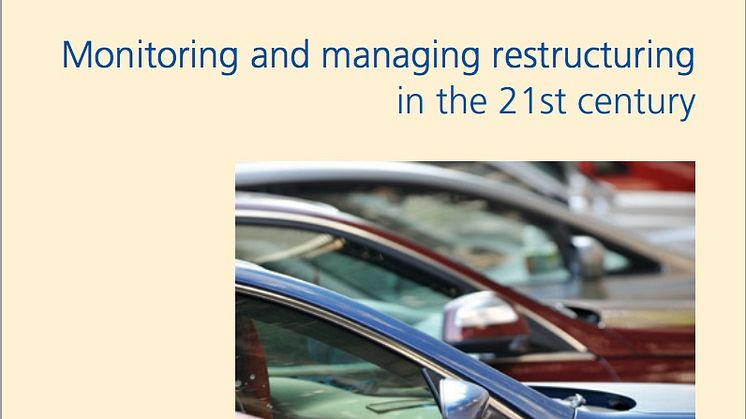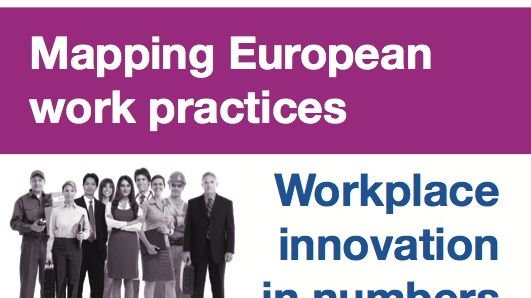Europe is struggling to deliver improved living and working conditions for all
Eurofound’s fifth annual yearbook, Living and working in Europe, based on the Agency’s research from 2013, describes developments in the EU in the wake of the crisis, focusing on major topic areas including changes in labour markets and employment, efforts to tackle youth unemployment, innovation in workplaces and public trust in institutions.










